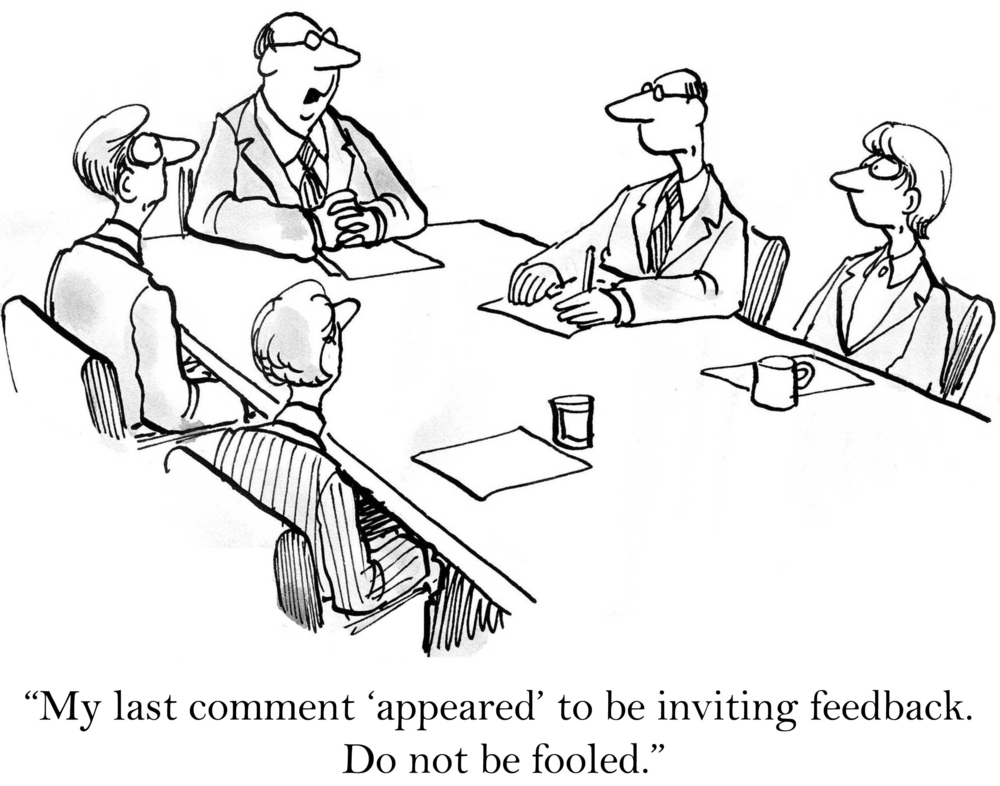
Giving Feedback is Fraught with Danger
Based upon data from our leadership simulations, we know that there are certain times leaders and managers should not give feedback to their boss, peers, or direct reports.
How Do You Know When Giving Feedback Makes Sense?
While that may sound strange to performance management experts and coaches, the above cartoon illustrates one instance when not to give feedback — when your boss says so in no uncertain terms! But, more seriously, there are other times when performance feedback is unwanted and unwarranted.
Positive vs. Negative Performance Feedback
If you want your teams to develop, and if you want to promote a workplace culture of continuous improvement, you need to be able to provide both positive and negative feedback so people know how they are doing. While positive feedback is typically easy to give and receive, negative or constructive feedback can be problematic.
Yet it is crucial for leaders and managers — especially new managers — to learn how and when to give both positive and negative feedback.
At Least Four Time Leaders and Managers Should NOT Give Feedback
Here is a list compiled by a recent group of executives involved in action learning for leadership development. In their experience, they determined that there were at least four times when leaders and managers should not give feedback. Do not give feedback when:
The Bottom Line on When to Give Feedback
The point is that performance feedback is critically necessary in the workplace to let people know where they stand and to manage and improve performance. But you should be thoughtful about the time, place and situation so that your comments are fair, complete, authentic, clear, and constructive.
To learn more about becoming a better manager, download The Six Management Best Practices that Make the Difference Between Effective and Extraordinary Leaders
Explore real world results for clients like you striving to create higher performance